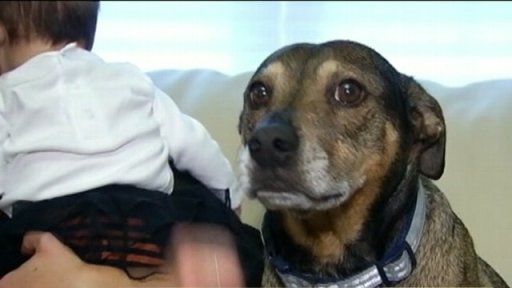Congratulations, you’re getting a new dog! Your first job as a new pet parent is to prep your home and your family for the furry bundle of joy who’s about to come barreling into your life. After all, you do want to get this relationship off on the right paw! Here are 10 tips to help you prepare.
1. Stock Up On Supplies
Your new pal won’t need much—the Burberry overcoat and crystal tiara are optional—but essentials include food and water bowls, safe chew toys, grooming tools, a collar and leash, an identification tag and a crate with bedding (towels will do if you don’t want to spend money on a fancy crate pad). When it comes to food, try to buy the same brand he’s already eating. If you want to change foods, make the switch gradually, mixing old food with new, over a period of a few weeks.
2. Divvy Up Responsibilities
To avoid conflict when Princess has to go out at 7:00 A.M., powwow with members of your household about who is going to be responsible for what. Who will walk the dog at various times of times of day? Who will feed the dog? Who will take the dog to the vet? And if it’s you who winds up walking her in the middle of a rainy night, slap on a smile and remember—pet parenting is a privilege, not a chore!
3. Establish House Rules
Before poochie comes home, decide things such as: Is she allowed on the furniture? Will we ever give her “people” food? What behaviors are encouraged, and which are forbidden? Consistency is the key to training dogs, so make sure everyone will stick to enforcing the new system.
4. Be Consistent in Training
Dogs can get confused when one human says “down” and another says “off” when, for example, they jump on visitors. Then there’s “down” versus “lie down,” and “paw” versus “shake”—surely you see how this is perplexing to another species! Do Fido a favor and be consistent with the terms you plan to associate with various commands. Better yet, write out a vocabulary list of the words that everyone will use!
5. Dog-proof Your Pup’s Environment
Tuck electrical cords out of the way, install safety latches in lower kitchen cabinets, etc. Make sure items that are dangerous to ingest—like children’s toys and chemicals—are off floor level. Some people find it helps to get down on the floor for a dog’s-eye view of every room to see what might tempt a curious canine.
6. Learn Some Handy Housetraining Tips
If your new pooch is not yet housetrained, determine where his indoor “potty spot” will be. Figure out your plan to housetrain him, and coordinate with the entire household.
7. Consider a Crate
Crates often give dogs a sense of security by offering them a place that is all their own. Providing your new pooch with her own safe and secure spot will help her adjust more quickly.
8. Make it Legal
Find out about your community’s dog licensing rules and apply for a license. This information can usually be found by visiting your state’s department of agriculture website. You can also ask your local shelter for information about the rules.
9. Make a Vet Appointment
If you don’t already have one, find a good veterinarian—and bring your new canine to a caring veterinarian for a wellness exam within one week after adoption. Make this first appointment even before you bring home your new pup.
10. Combat Sibling Rivalry
This one’s for folks who already have a dog in the home. Before you introduce the new hound into the pack, pick up anything your resident dog might guard, such as food bowls, bones, toys and beds. Even if your dog has never exhibited possessive tendencies, it is best to exercise caution. This may be an intense experience for your resident canine, so do be patient with her.
Citation:
ASPCA. “Top 10 Things To Do Before You Bring Your New Dog Home.” ASPCA. N.p., n.d. Web. 26 Sept. 2012. <http://www.aspca.org/adoption/adoption-tips/bringing-your-new-dog-home.aspx>.






